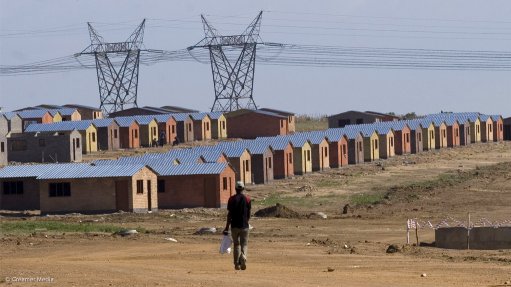
Photo by: Duane Daws
The Department of Human Settlements plans to abandon the rectification programme aimed at fixing poorly built houses and is placing the responsibility for repair work at the contractors’ feet.
Over the past three years, the department has spent R2-billion on repairing Reconstruction and Development Programme, or State-subsidised, houses through a programme meant for the repair of homes built prior to the establishment of building industry regulator, the National Home Builders Registration Council.
The Eastern Cape, spending R1.5-billion, accounted for the bulk of the expenditure, followed by R206-million in KwaZulu-Natal, R137-million in Gauteng and R121-million in the Free State. Limpopo spent the least on housing repairs at R7.6-million.
“I do not know how we came to this unacceptable situation, but it is my intention to scrap this programme and ensure that the onus is on each and every contractor to build properly or return to repair,” averred Human Settlements Minister Lindiwe Sisulu at the annual Govan Mbeki Awards this week.
“Let us cut the waste,” she said, adding that the freed-up funds could allow the department to return its focus to building houses for those still waiting and mitigate the backlog.
Earlier this month, Democratic Alliance Shadow Minister of Human Settlements Makashule Gana estimated that 35 000 new housing units could have been built with the funds used to undertake the repairs.
“It is unacceptable that the department’s national rectification programme has spent billions on repairing houses owing to poor workmanship and, thus, in doing so exploiting the Human Settlement Development Grant,” he stated, vowing to submit further parliamentary questions to establish how the tenders to build these units were awarded and what measures were in place to have the contractors responsible blacklisted nationally.
Meanwhile, Sisulu pointed out that the department would finally embark on the long-awaited programme for the rolling out of housing for military veterans, with construction of the first 5 000 houses expected to start in September.
“The policy instrument for building houses for military veterans was approved in 2006 and not a single house stands to attest that we have a housing policy for military veterans,” she noted.